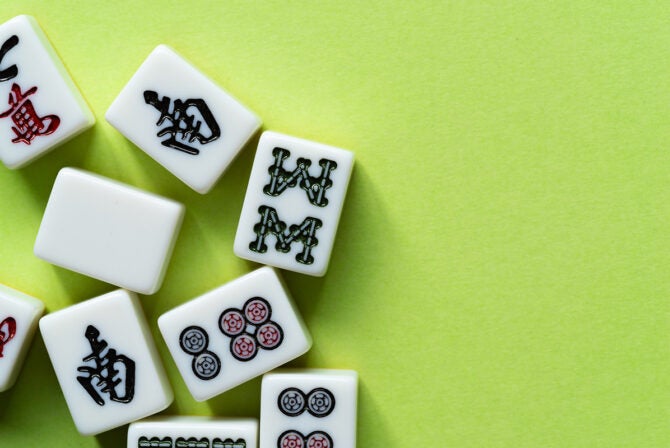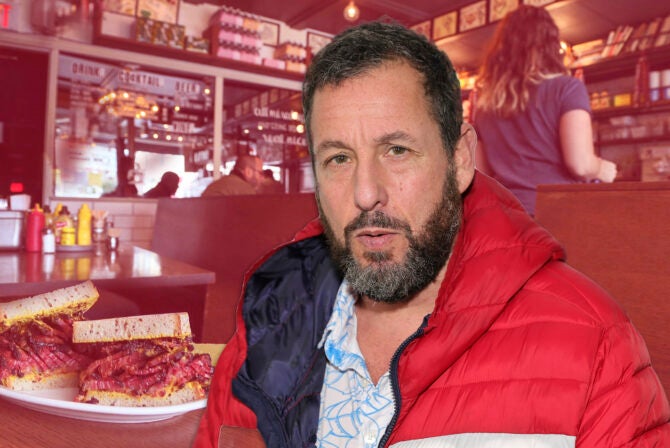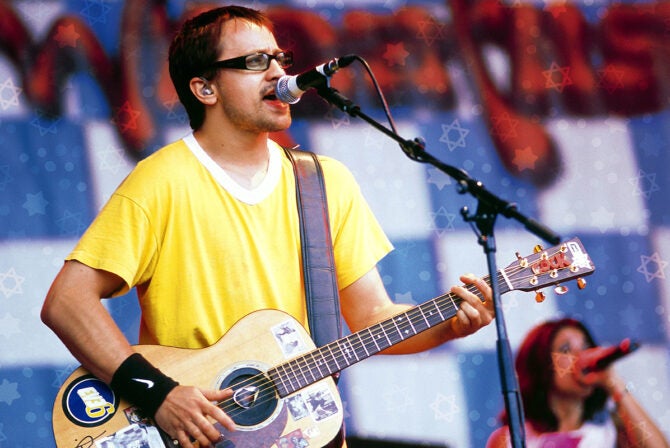“What is that play area, Mommy?” my son asks as we creep by the graveyard in morning traffic.
I don’t see a playground near us so it takes me a few minutes to realize he’s talking about the cemetery. As I start to answer I realize he’s never heard of the word graveyard before, so my cursory response is completely unsatisfactory to him.
“Can we play there?”
I tell him a graveyard is where dead bodies are buried. I tell him our soul leaves our body and goes to live with God. I don’t know why I tell him about souls. We’re Jewish but we don’t talk about God that much, so I find it funny that I’m relying on the comforting answer. But I want him to feel comforted.
“Can’t we just dig them up then?”
I tell him about coffins, and how you can’t dig up a body because really there’s not much there anyway. I remind him that the soul, the heart of a person, is with God, so after you die, it doesn’t matter what happens to the body. Then I add that families like to visit so we put a headstone where the body is buried.
“Is Daddy going to die?” he asks, probably because his dad just left for yet another trip with the Navy.
“No.” I tell him that no one dies until they are 100.
‘But I’m 5.” He pauses. “So I’m right in the beginning. And how old is Daddy?”
“40,” I say.
“So he’s halfway there.”
“And the baby,” he gestures to my youngest, who is only 1. “He’ll be all alone. Because he’ll be 100 last so he’ll be all alone.”
I don’t know what to say. I’ve chosen this arbitrary number of 100 because I thought it was comforting. I don’t want to tell him that sometimes there are accidents and sickness and that really, death can happen to anyone, at any age. That we’re all just lucky every day. I stick to 100. But it didn’t work because now he’s realized that no matter what, you have to die alone and be alone.
And then my daughter, who’s 3, who listens to conversations and then seems to always say something incredibly insightful, chimed in. “What happens to the family? When someone goes to be in the graveyard?”
I tell her they keep living. I tell her they’re sad, but the person who died is OK because they’re with God. I have no idea what I’m saying. I don’t know how this conversation got this deep so fast. I say whatever I have to say to ensure my kids don’t think death is anywhere near their lives.
Except I had a friend who died when we were 10 years old. She had cancer. I don’t remember her not being sick. I remember her in wheelchairs, wearing a cap to hide her patches of hair, missing weeks of school and then showing up to say hello for a few days or weeks at a time. And I remember when she died, the guidance counselor came to read our class a story about leaves that fall off of trees in autumn. That story was supposed to represent the life cycle, that everyone dies sometime. Some kids went home from school on the day they told us she died. Some kids cried in the bathroom.
I went to a friend’s house after school and when I arrived, I called my mom to tell her my friend had died. My 8-year-old brother answered the phone. I told him instead.
“My class goldfish died today,” he said.
My parents didn’t let me attend the funeral, even though many of my friends did. They said it wasn’t appropriate. I spent the whole day in my room as a silent protest. When they got home, they told me she was wearing a ball cap and her eyes were closed, like she was sleeping. I heard my parents whisper that her casket was just so small. That caskets should never be that small.
In the school halls for the next week, kids whispered, as fifth graders do. “Did you see how she looked? Is that how you look when you die?” I was wondering what the big deal was. It didn’t seem like the funeral was that scary.
I was 13 before I attended my first funeral. It was for my grandmother, who was Catholic. Because my mom converted and I was raised Jewish, I’d never actually been to a church before. I didn’t like being so close to everyone in the pew. I longed for my own chair, like we had at synagogue.
My dad sat behind me and wore his sunglasses through the whole service. I thought he wanted to look cool. It took me years to figure out the sunglasses were hiding his tears.
At the end, some men stood up and picked the casket up over their heads. They each rested a corner on their shoulders and began walking slowly out of the church. They were crying. We were supposed to follow them, because we were the family.
“Where are they going?” I asked my mother.
“It’s time for the burial,” she whispered.
Wait, what? I thought we were done. Now I had to watch them put Nana in the ground? No way.
We followed them outside, and I watched them hoist the casket into the hearse. Before I knew what I was doing, I screamed. “No!” This can’t be real. They’re not putting her in the ground. She wears tracks suits and makes me egg salad sandwiches. How could she just be in a box? Is everything she did really over? Just like that? The finality was overwhelming.
My aunt was behind me in seconds. She wrapped me in her arms. “She’s not in there! She’s not in there!” she kept repeating.
“She’s not?” I stopped crying long enough to turn my head and look at my aunt. If that was true, I’d be OK. I could calm down. She’s not in there. She’s not in that box.
“It’s just her body. She’s with God. She’s not there. It’s not her. She’s not there.” She buried her face in my hair.
No. Not good enough. If that were true, if her body was in the box, then this was really happening. I squeezed my eyes shut. Her arms enveloped me as the men carried the coffin into the hearse. I couldn’t even look.
On the way home from the funeral that day, my dad turned on his Eagles CD. We didn’t talk. We listened to that CD for the whole two hour drive home.
***
“Mommy!” my son’s tone is urgent. “Did you hear me? I said, do you have to be 100 to die?”
“Yes.” I answer. “Where should we go for lunch? Do you want a sandwich?”
And then I turn on the radio. I found it funny that the station was playing The Eagles.
Read More:
Meet the Orthodox Jewish Fashionista Who’s Giving Modesty a New Name
This Woman Left Hasidism So She Could Become a Woman
This 7-Year-Old Reunites With His Dad–And His Reaction Is Incredible







